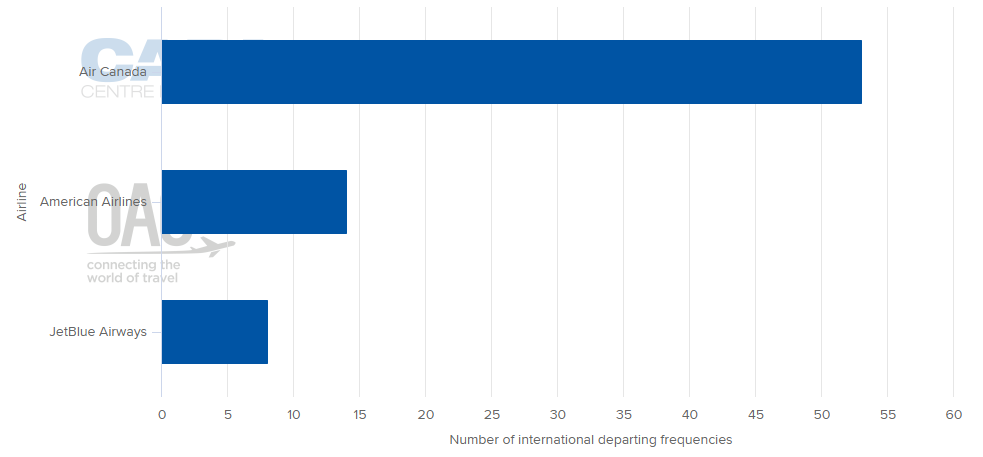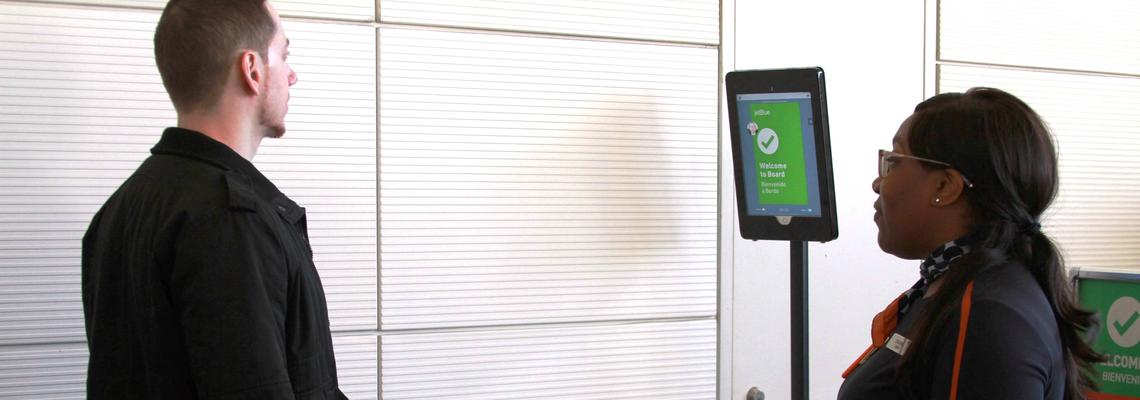Summary:
- JetBlue has helped launch a one-step biometric boarding process at Reagan National using the airport authority's newly developed veriScan system;
- the veriScan system employs facial-recognition technology to streamline passenger verification and boarding on outbound international flights;
- Several airlines at Washington Dulles International, including United Airlines, Air France-KLM, SAS, Emirates and Cathay Pacific already use the system.
Described as a "biometic boarding solution for airports, by an airport," the veriScan system employs facial-recognition technology to streamline passenger verification and boarding on outbound international flights, allowing passengers to board seamlessly without presenting a passport or boarding pass.
The system was designed and launched by the Metropolitan Washington Airports Authority's Office of Technology in response to a congressional mandate for United States Customs and Border Protection (CBP) to implement biometric exit processes for commercial airline flights leaving the country.
Launched on 10-Nov-2018, JetBlue is the first carrier to deploy veriScan in a one-step configuration - which allows passengers to board its flight from Reagan National to Nassau, Bahamas, using only facial capture technology. This latest biometric offering builds on the success of JetBlue's biometric boarding trials in New York, Boston and Fort Lauderdale.
CHART - JetBlue is the smallest of the three airlines currently offering international flights from Washington Reagan National Source: CAPA - Centre for Aviation and OAG (data: w/c 19-Nov-2018)
Source: CAPA - Centre for Aviation and OAG (data: w/c 19-Nov-2018)
The new process was able to board 93 passengers in just 10 minutes - an average of just 5.5 seconds per passenger for verification by both Customs and Border Protection and JetBlue's departure control system, says the airport authority.
"The veriScan system has become a critical tool for our airline partners as we work to enhance safety, efficiency and convenience at the airport," says Goutam Kundu, vice president and chief information officer for the Metropolitan Washington Airports Authority.
Since its launch in Jul-2018, veriScan's two-step functionality has been piloted in four airports with 18 airlines on 139 flights - processing more than 25,000 passengers while exceeding a 98.5% success rate.
Several airlines at Washington Dulles International Airport, including United Airlines, Air France-KLM, SAS Scandinavian Airlines, Emirates Airline and Cathay Pacific now use the system daily to expedite passenger verification on departing international flights.
"The biometric boarding system developed for use at Reagan National and Dulles International has gained the attention and support of other airlines and airports because it is cost effective, easy to deploy and allows passengers to board flights faster and easier than ever," adds Mr Kundu.
Using proprietary software loaded on a portable tablet, veriScan encrypts and sends high-resolution photos of passengers boarding international flights to the CBP Traveler Verification Service for nearly instant identity verification. When integrated with airline boarding systems, veriScan further streamlines and expedites the boarding process by eliminating the need for boarding passes.
"We designed this technology to be deployed quickly and offer a portable, flexible and inexpensive solution to meet US Customs biometric exit screening requirements," explains Jack Potter, president and CEO, Metropolitan Washington Airports Authority.
The entire veriScan screening process should take less than two seconds, helping airlines expedite the boarding process. Unlike most other facial recognition systems requiring the installation of large equipment and dedicated communications and electrical lines at each gate, the veriScan system uses battery-powered, Wi-Fi / cellular connected tablets that are portable and interchangeable among gates.
Because of this, veriScan is easy to install, and according to the airport authority requires only a 30-minute training before it can be used by airline gate agents, and costs one-tenth that of other commercially available solutions.
